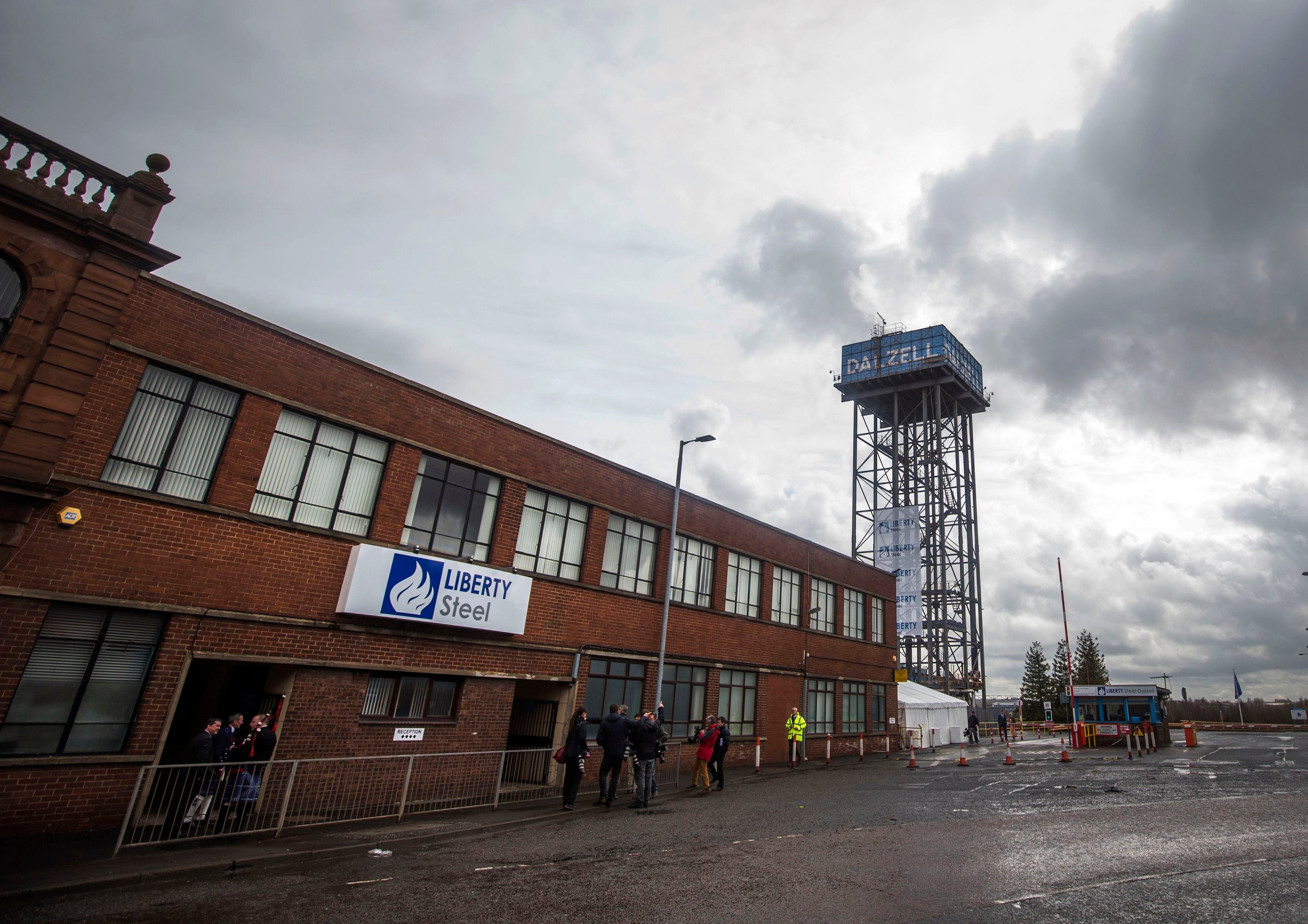Deal to save ‘totemic’ steelworks may have breached state aid rules, MSPs told
Business minister Ivan McKee said the agreement to rescue the Dalzell and Clydebridge plant ‘may not comply’ with state aid rules.

Your support helps us to tell the story
From reproductive rights to climate change to Big Tech, The Independent is on the ground when the story is developing. Whether it's investigating the financials of Elon Musk's pro-Trump PAC or producing our latest documentary, 'The A Word', which shines a light on the American women fighting for reproductive rights, we know how important it is to parse out the facts from the messaging.
At such a critical moment in US history, we need reporters on the ground. Your donation allows us to keep sending journalists to speak to both sides of the story.
The Independent is trusted by Americans across the entire political spectrum. And unlike many other quality news outlets, we choose not to lock Americans out of our reporting and analysis with paywalls. We believe quality journalism should be available to everyone, paid for by those who can afford it.
Your support makes all the difference.A deal by the Scottish Government to save the country’s last remaining steel plant may have breached state aid rules.
Business minister Ivan McKee said ministers had now been advised that “one specific part of the contract arrangement” in the sale of the Dalzell and Clydebridge steelworks to Liberty Steel in March 2016 “may not comply with state aide rules”.
Public spending watchdog Audit Scotland has now been informed of the situation, the minister added, as well as the previous owner of the plant Tata Steel.
Current owners Liberty Steel UK and the European Commission are also being informed about the possible breach of state aid rules – which lay down requirements for the use of public cash to help organisations.
It was not our intention to sign to a contract clause which may not comply with state aid requirements
As he revealed details of the possible breach to MSPs at Holyrood, Mr McKee faced questions about when the Scottish Government became aware that its deal “breaks the law”.
Conservative MSP Jamie Halcro-Johnston demanded: “When was the Scottish Government first advised their agreement might not comply with state aid rules?”
Labour’s Daniel Johnson similarly pressed the minister, asking: “When did this come to light, and how is this possible that such an important deal could get through due diligence and not have it spotted the fact that it breaks the law?”
Mr McKee insisted the deal to save the steelworks was the “right decision at that time and continues to be so”.
He told MSPs that “faced with the potential permanent closure of the last remaining steel plant in Scotland with the loss of hundreds of highly skilled jobs, the Scottish Government took action to support the purchase of the rolling mills at Dalzell and Clydebridge”.
The plant had been mothballed by Tata in 2015, Mr McKee said, adding the rescue deal was agreed over a period of days in March 2016 when Holyrood was in recess ahead of the Scottish Parliament election.
The “unique and unprecedented” action by the Government saw it take ownership of the business “for a short period of time” while it was transferred.
The Scottish Government bought the steel plant from Tata for £1, with the business then sold on to Liberty Steel, which continues to operate it.
Mr McKee said the deal had had to be struck “at pace, in a high pressured commercial environment with our aim being to save a totemic Scottish industry”.
He added: “It was not our intention to sign to a contract clause which may not comply with state aid requirements.”
Mr Halcro-Johnston said the deal being done while Holyrood was not sitting meant MSPs could not scrutinise the arrangements, while the SNP could seek to use it to make “political capital”.
But Mr McKee told him: “It was the commercial reality we faced at that time, it was something frankly we are proud we did to save those jobs and save the Scottish steel sector.
“It was the right decision at that time and continues to be so.
“There’s still a steel sector in Scotland, people are still employed in high skilled jobs in that sector.”
The minister also dismissed suggestions that the current deal could leave the Scottish Government liable to pay clean-up costs for the land, if the GFG Alliance, which owns Liberty Steel, was to collapse.
Mr Johnson asked if this would be the case, noting the clean-up cost for the former Ravenscraig steelworks was £70 million 20 years ago.
Mr McKee insisted: “There is no liability as a consequence of the current position to the Scottish Government.”